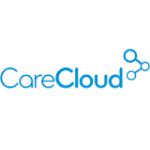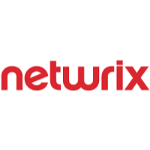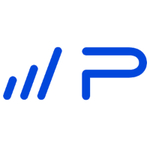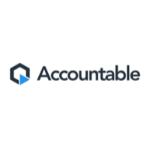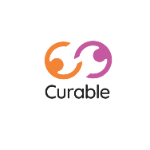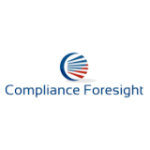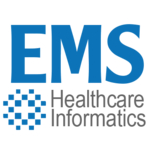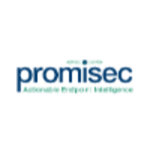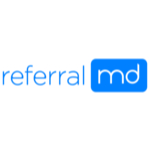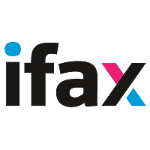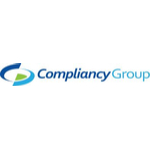TechnologyCounter provides genuine, unbiased real user reviews to help buyers make informed decisions. We may earn a referral fee when you purchase through our links, at no extra cost to you.
List of 15 Best HIPAA Compliance Software
Showing 1 - 15 of 17 productsCareCloud is a cloud-based healthcare software designed to streamline and simplify administrative tasks, enhance patient care, and improve overall efficiency for medical practices. With its user-friendly interface and innovative features, CareCloud i...Read CareCloud Reviews
Netwrix is a leading provider of innovative IT auditing and security software solutions. With a focus on helping organizations identify and mitigate cybersecurity risks, Netwrix offers a range of robust and user-friendly products that enable business...Read Netwrix Reviews
Paubox is more than just a software - its a promise of secure email communication. With a focus on simplicity and user-friendly features, Paubox offers a seamless experience for businesses looking to protect their emails and adhere to HIPAA complianc...Read Paubox Reviews
Accountable is a software that helps businesses of all sizes manage their financial transactions with ease and precision. From tracking expenses to generating reports, this user-friendly tool allows you to streamline your accounting processes and sta...Read Accountable Reviews
Curable is a solution for managing and overcoming chronic pain. This innovative software utilizes evidence-based techniques and personalized treatment plans to empower individuals to take control of their pain and regain their quality of life. Say go...Read Curable Reviews
Compliance Foresight is a regulatory compliance solution for businesses of all sizes. With its advanced features and innovative approach, Compliance Foresight streamlines and simplifies compliance management, ensuring organizations stay updated and c...Read Compliance Foresight Reviews
Alert Logic is a leading provider of innovative cybersecurity solutions designed to protect businesses of all sizes from online threats. With a team of experts and a commitment to constant improvement, Alert Logic offers unparalleled defense against...Read Alert Logic Reviews
EDI Power Reader is a software designed to simplify and streamline the process of data exchange between businesses. With its intuitive interface features, it allows for efficient management of EDI documents, ensuring seamless communication and boosti...Read EDI Power Reader Reviews
Promisec offers an innovative software solution that helps businesses streamline their IT management processes and ensure compliance with regulations. With its intuitive interface features, Promisec simplifies complex IT tasks and provides valuable i...Read Promisec Reviews
SecurityMetrics is a trusted name in the world of security solutions. With a focus on safeguarding businesses and their customers against cyber threats, SecurityMetrics offers top-notch security measures and services that are constantly evolving to k...Read SecurityMetrics Reviews
Avatier Identity Anywhere is a identity and access management solution designed for the modern digital landscape. Say goodbye to traditional and tedious IAM processes, and say hello to a seamless, intuitive, and secure way of managing identities acro...Read Avatier Identity Anywhere Reviews
DriveStrike is a is a data protection software designed to secure and protect your devices and data from potential threats. With its advanced features interface, DriveStrike offers reliable and robust security solutions to safeguard your personal and...Read DriveStrike Reviews
ReferralMD is the all-in-one software platform that revolutionizes the way healthcare providers communicate, collaborate, and refer patients. With its user-friendly interface and innovative features, ReferralMD streamlines the referral process, impro...Read ReferralMD Reviews
Ifax App, the innovative mobile application designed to simplify and streamline all your faxing needs. With its user-friendly interface is a features, Ifax App allows you to send and receive faxes on-the-go, eliminating the need for traditional fax m...Read Ifax App Reviews
Compliancy Group HIPAA is a trusted compliance management software designed to help healthcare organizations meet the rigorous standards of HIPAA regulations. With its user-friendly interface and robust features, it streamlines the process of achievi...Read Compliancy Group HIPAA Reviews
- What Is HIPAA Compliance Software?
- Top Reasons Why Businesses Need HIPAA Compliance Software?
- What Are the Top Key Features of HIPAA Compliance Software?
- What Are the Top Benefits of HIPAA Compliance Software?
- What Are the Steps to Choose the Right HIPAA Compliance Software?
- What Are the Types of HIPAA Compliance Software for Different Industries?
- What Are the Technology Trends for Best HIPAA Compliance Software?
- What Are the Deployment Options for HIPAA Compliance Software?
What Is HIPAA Compliance Software?
HIPAA compliance software is intended to aid in the protection of protected health information (PHI) stored and transmitted electronically. This program creates a safe environment in accordance with the Health Insurance Portability and Accountability Act (HIPAA).
HIPPA compliance management software makes it more difficult for unauthorized individuals to access confidential health information or records by utilizing encryption, authentication technology, and other protections. The program ensures that all HIPAA standards governing the privacy and confidentiality of PHI are followed. The best HIPPA compliance software, in addition to preventing unauthorized access, continuously monitors PHI and offers monitoring and reporting of every access to health care records.
This allows enterprises to manage and regulate who has access to their data, ensuring that it is handled in conformity with HIPAA requirements. It also comprises administrative, physical, and technical safeguards to keep PHI secure. It, for example, aids with the security of data while it is being sent, stored, and backed up.
Overall, top HIPAA compliance software is critical for enterprises that create, receive, keep, or transfer PHI in order to comply with the legislation and ensure the security and privacy of protected health information. This program protects patients' privacy and gives organizations peace of mind.
Top Reasons Why Businesses Need HIPAA Compliance Software?
1. Creates safeguards and practices for collecting, using, accessing, and disclosing Personal Health Information (PHI).
2. Aids in the prevention of health information theft and illegal access.
3. Compliance with HIPAA Security Rule standards is possible.
4. Creates a system of security measures for preventing, detecting, containing, and repairing security breaches.
5. Aids in determining where and how PHI is stored, accessed, and used.
6. Allows covered entities to demonstrate that they are in compliance with organizational and regulatory requirements.
7. Ensures that personal health information (PHI) is accurate, full, and safe against unauthorized use and disclosure.
8. Improves patient privacy and trust in the healthcare organization.
9. Creates detailed security policies and procedures for all forms of PHI transmissions.
10. Send out security alerts regarding high-risk regions on a regular basis.
11. Secure contact, messaging, and email methods are ensured.
12. Compiles comprehensive audit logs of PHI-related actions.
13. User access is monitored and necessary authorization is granted.
14. Tracks compliance actions related to PHI security.
15. Data backup operations are automated for PHI storage and security.
What Are the Top Key Features of HIPAA Compliance Software?
The top key features of HIPAA compliant software include:
1. Data and Access Management: This feature allows organizations to securely regulate who has access to sensitive data and to monitor when it is accessed or utilized.
2. Encryption: This feature ensures that any sensitive data being processed or stored is encrypted and communicated securely.
3. Auditing and Logging: This feature enables thorough auditing and logging of all data management and access actions to ensure compliance.
4. Authentication: This feature ensures that only authorized users have access to the secure data, and that all login attempts are tracked and logged.
5. Risk Management: This feature helps organizations to detect, assess, and monitor all risks and vulnerabilities on their systems in order to adopt appropriate safeguards and measures.
6. Breach Detection and Notification: This feature enables automated monitoring of security threats and review activity to ensure that any potential breach is recognized and notified as soon as possible.
7. Network Security: This tool assists enterprises in identifying potential network security vulnerabilities, monitoring their networks, and implementing security measures to safeguard their infrastructure from attack.
8. Employee Training: Compliance officers can ensure that employees and contractors receive HIPAA-related training and updates so that they are aware of their responsibilities and expectations.
What Are the Top Benefits of HIPAA Compliance Software?
1) Improved Patient Safeguards: HIPAA-compliant software protects patient data against illegal access and protects patient privacy. Furthermore, the enhanced security measures connected with such software can prevent data breaches, lowering legal and financial exposure associated with HIPAA violations.
2) Cost Reduction: HIPAA-compliant software can assist control the costs involved with securely and efficiently processing patient information. HIPAA compliance is a cost-effective solution since it reduces the physical and digital infrastructure required to properly store and access patient data.
3) Regulatory Compliance: HIPPA compliance management software assists enterprises in remaining in compliance with all applicable rules and regulations pertaining to patient data protection. Organizations that do not have such software may face fines and other penalties for HIPAA violations.
4) Improved Workflows: The best HIPAA compliance software simplifies the processing of essential patient information by eliminating the need for human verification and data entry. Organizations can avoid errors and save time by optimizing the data-accessing process.
5) Improved Disaster Recovery Planning: Organizations can create efficient disaster recovery plans with the support of HIPAA-compliant software to ensure patient data remains secure and accessible during an emergency. This will provide for continued access to patient records even if unexpected situations arise.
What Are the Steps to Choose the Right HIPAA Compliance Software?
1) Understand your organization’s needs: Before picking HIPPA compliance management software, it is imperative to accurately identify and comprehend the precise needs of your healthcare institution. When evaluating the security measures required, it is important to take into account many elements, including the size of the firm, the total amount of staff members, the forms of technology currently being utilized, and the quantity of data points that need to be safeguarded.
2) Research HIPAA compliance software options: After gaining a comprehensive understanding of the requirements of your firm, commence the process of conducting research on various products and services that has the capability to effectively fulfill these needs. Conduct a thorough examination of vendors, carefully analyze reviews, and prioritize vendors that provide a complimentary trial period.
3) Compare features and benefits: This study aims to compare several software choices for HIPAA compliance, focusing on their respective features and benefits. When evaluating options, it is important to take into account several elements, including but not limited to cost, scalability, ease of use, customer service, and technical support.
4) Consider specific technical requirements: It is imperative to take into account precise technical prerequisites, encompassing hardware specifications, compatibility with operating systems, system security, and measures pertaining to cyber security.
5) Test the software: Conducting thorough testing is a crucial aspect, particularly for IT teams, in the process of choosing the best HIPPA compliance software. Evaluate the software's compatibility with pre-existing technology, its capacity to fulfill the specific requirements of the organization, and its overall user-friendliness.
6) Consider the quality of service: Prior to making a definitive decision, it is advisable to conduct thorough research on the vendor's service quality, including factors such as anticipated uptime, maintenance agreements, and customer support.
7) Make a decision: After conducting thorough research and carefully considering the available alternatives, it is now appropriate to proceed with the decision-making process. It is imperative to engage in a comprehensive evaluation of all available alternatives and carefully assess the advantages and disadvantages prior to making a well-informed selection of the appropriate top HIPAA compliance software for one's firm.
What Are the Types of HIPAA Compliance Software for Different Industries?
Various industries have access to a range of the best HIPAA compliance software options, tailored to address the specific requirements of individual businesses. Medical record management systems are widely used by healthcare practitioners to safeguard patient confidentiality, security, and privacy.
Healthcare facilities such as hospitals, clinics, and physical therapists employ these systems to effectively store and manage patient information while adhering to the regulations set out by the Health Insurance Portability and Accountability Act (HIPAA). Financial institutions, such as banks and insurance businesses, exhibit a preference for HIPPA compliance management software that safeguards confidential data and seamlessly integrates with pre-existing internet platforms.
Top HIPAA compliance management software aids financial organizations in achieving compliance with rules and regulations about their operations. Additional sectors that depend on resilient and safeguarded systems to ensure the security of client information and uphold regulatory and privacy standards encompass human resource management, legal services, and the real estate industry.
These firms have the capability to employ document management, signature verification, and encryption software in order to securely share and preserve client data in compliance with the regulations outlined in the Health Insurance Portability and Accountability Act (HIPAA).
What Are the Technology Trends for Best HIPAA Compliance Software?
There are many emerging technology trends in the best HIPAA compliance software. Here are some of the trends:
1. Cloud Computing: Cloud computing is experiencing a growing surge in popularity as a prominent technological trend within the realm of HIPPA compliance management software. The utilization of cloud-based storage and software applications enables enterprises to securely keep their data within a cloud-based setting.
Hence, mitigating the necessity to allocate resources toward costly physical gear and servers. Cloud computing enables enterprises to conveniently access their data from any device, regardless of geographical location.
2. Artificial Intelligence: The significance of AI-based technologies in upholding security and compliance is growing, particularly in relation to the utilization of diverse software solutions that adhere to the best practices of HIPAA compliance. AI-based technologies, namely machine learning, provide the capability to effectively monitor and deliver real-time feedback and notifications regarding alterations in regulatory or security prerequisites.
3. Automation: The significance of automation in the realm of top HIPAA compliance software is growing, as numerous products are now being employed to automate various operations, including data audit and analysis, compliance reporting, and other related activities.
Automated technologies have the potential to enhance the precision and effectiveness of organizational processes, hence facilitating improved adherence to HIPAA regulations.
4. Blockchain: Several top-rated HIPAA compliance software products are incorporating blockchain technology to offer improved security and privacy measures. The utilization of blockchain technology facilitates the secure storage and sharing of confidential health information, hence empowering medical institutions to effectively safeguard their data.
What Are the Deployment Options for HIPAA Compliance Software?
The available deployment choices for software that adhere to HIPAA compliance software standards differ based on the specific characteristics of the software in question. In general, the deployment of a software application can be accomplished through various means, including on-site hardware, cloud computing, virtualization, or a combination thereof.
1. On-Site Hardware: The conventional method of application deployment necessitates the actual installation of hardware and/or software at the user's location. Typically, this alternative is considered to be the most safe since it entails storing all data inside the user's physical surroundings. Nevertheless, it is important to note that this option is also associated with the highest expenses, as it requires the user to make an initial investment in hardware and thereafter bear the ongoing costs of maintenance and support.
2. Cloud Computing: The utilization of cloud-based deployment obviates the necessity of procuring and upkeeping hardware and software within the premises. Furthermore, the software exhibits a high degree of accessibility since it can be used from any location with an active Internet connection.
Additionally, users are able to efficiently oversee their data without the need for specialized equipment. Cloud computing has various advantages, including the capacity to scale resources, adapt to changing demands, and maintain a high level of accessibility.
Naturally, there exists a tradeoff wherein customers are required to place their trust in a third-party provider for the storage of their data, with the caveat that said service may or may not adhere to the criteria outlined by HIPAA.
3. Virtualization: Virtualization offers customers the capability to execute software applications that are deployed on diverse platforms, including data centers. The aforementioned approach exhibits the capacity to enhance scalability, disaster recovery, and cost-efficiency.
However, akin to cloud computing, customers are required to place their trust in a third-party supplier for the security and management of their data. The selection of a deployment method for software that adheres to HIPAA compliance management software ultimately hinges upon the specific requirements and available resources of the user organization.
Given that each deployment option possesses distinct advantages and disadvantages, it is imperative for users to meticulously evaluate their alternatives and decide on the one that most effectively aligns with their requirements.
